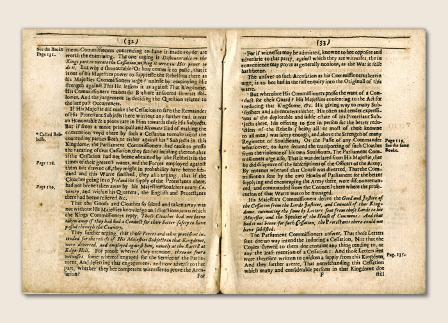What was discussed - Ireland
Why was this important?

This led to an Irish Catholic rebellion in 1641. Charles I negotiated a peace with the rebels on 15 September 1643. As head of the Church of England, the King's actions seemed inappropriate and suspicious to his subjects.
The negotiations at Uxbridge took place during violent struggles between Catholics and Protestants in Europe. They reflect the religious paranoia of the time, and were as much a set of accusations as proposals.
The Parliamentary view
Without the peace treaty, the rebellion could already have been defeated. The war should therefore recommence immediately. Many Protestant Irish garrisons had prospered, despite ignoring the peace.
The Royalists had prevented arms and supplies from reaching Protestant troops in Ireland.
The Royalist view
War in Ireland was impossible while there was still war in England. The peace had been negotiated simply to prevent Protestant forces from being overrun.
The King's forces had never knowingly blocked the passage of arms or supplies.
Parliament had diverted money meant for Irish troops to fund their campaigns in England.